I’ve been doing a lot of review of the acupuncture system over this last year and it’s understanding of living with the rhythms of life. Eating, working, playing and resting in the way the blog post suggests may be my next most important challenge.
Read and consider for yourself!!
Best regards,
Dr Kevin
You’ve probably heard it’s unhealthy to eat late into the evening, especially if you’re trying to lose weight. But were you aware this information was known and practiced hundreds of years ago, before modern science developed?
An ancient concept, the Chinese Clock is based on twelve, 2-hour time slots throughout the day, each corresponding to a different organ. It is considered the peak time for the organ and comes with guidelines for living in harmony with the rhythm of the day. The period twelve hours after the high time is considered the organ’s weak period.
Here is how your body keeps time:
3 am – 5 am – Lungs: Connected to heavenly energy, many spiritual traditions recommend waking at these early hours for prayer and meditation. It is an opportunity for inspiration, breathing deeply and receiving messages from our deepest inner selves, and our higher power.
5 am – 7 am – Large Intestine: Time to eliminate anything that is no longer needed, and allows the day to begin anew. In Chinese Medicine, a healthy body defecates once a day upon awakening.
7 am – 9 am – Stomach: ‘Eat breakfast like a king, lunch like a prince and dinner like a pauper.’ The best time of day for a large meal – notice how you don’t usually feel sleepy after a hearty breakfast?
The low period for the Stomach is 7 pm – 9 pm, this explains why eating late is harder on your body, it is not designed to digest that late at night (it has other fun things in store for you!).
9 am – 11 am – Spleen: Responsible for distributing energy throughout your body, it takes breakfast and transforms it into usable energy. When the Spleen is strong, this is the perfect moment to think, focus and be productive. When weak, there is worry, and lack of energy to get anything started.
11 am – 1 pm – Heart: The best time to connect through conversations and meetings on a heartfelt level, especially with people that you enjoy. Also good for mending relationships.
1 pm – 3 pm – Small Intestine: When many cultures have their midday meal, and for good reason. Processes food by separating the pure – the nutrients, from the impure – the waste products, which are then sent on to the Large Intestine.
3 pm – 5 pm – Bladder: The perfect occasion for a siesta! It is time to store and reserve your energy. Best to lay low and not plan too much activity.
5 pm – 7 pm – Kidneys: A period for contemplating and strategizing. Has to do with will power and deep inner strength. Do some gentle replenishing with breathing, Tai Chi, or gentle yoga before moving on to the evening’s activities.
7 pm – 9 pm – Pericardium: Surrounding the heart, makes this another good opportunity to connect with others, especially in a more flirtatious, vivacious way.
9 pm – 11 pm – Triple Warmer: Not an actual organ, rather an energetic one that evenly distributes energy throughout the body. The ideal point to start winding down, relax, and find a way to let go of your day so the energy circulating is positive and relaxed for a sound night’s sleep.
11 pm – 1 am – Gall Bladder: Responsible for decision making, so sleep on it! Let the Gall Bladder resolve it for you. Chinese Medicine says that one hour of sleep before midnight is worth two hours after midnight.
1 am – 3 am – Liver: As the ‘General’ of the body, it helps detoxify, both physically and emotionally. Without proper rest, there is inclination towards frustration, impatience and anger. A benevolent General needs his/her rest.
Following the natural cycle of your body allows you to live in concordance with the rhythm it was meant to keep. If you are having health concerns, pay attention to what your body is telling you throughout the day, and notice what changes.
Source – https://naturalremediescure.wordpress.com/2012/10/27/the-chinese-clock-how-your-organs-keep-time/


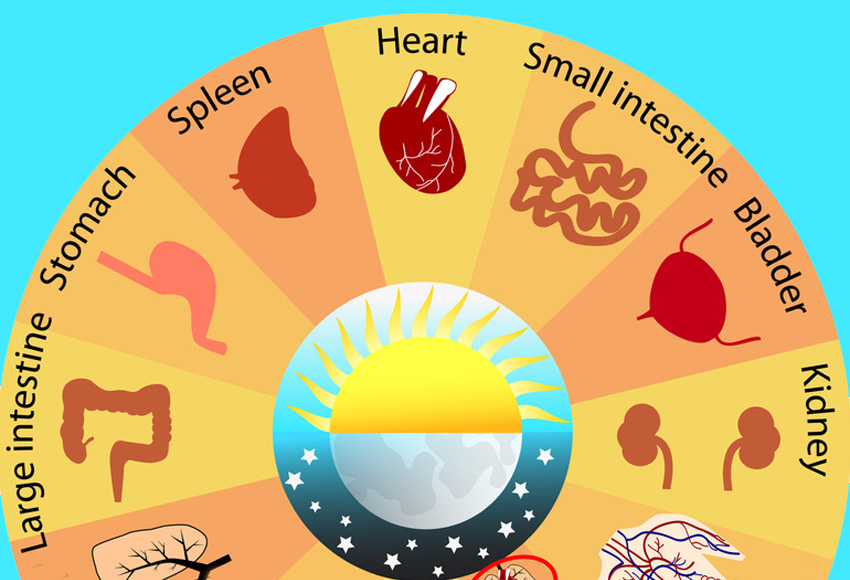
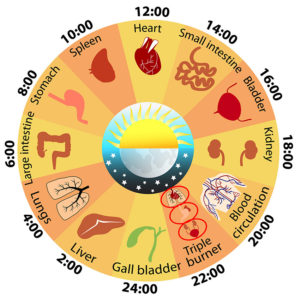
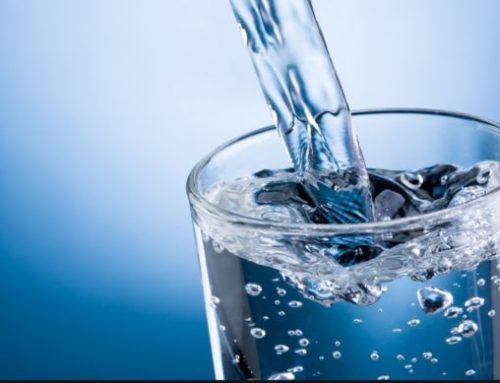
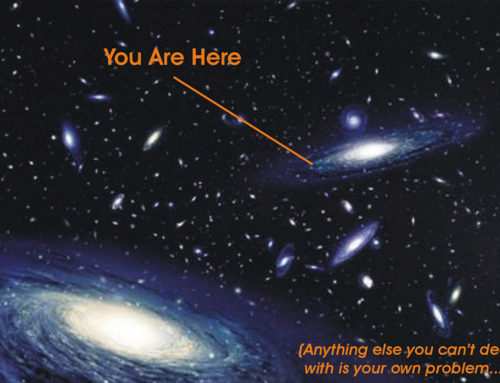
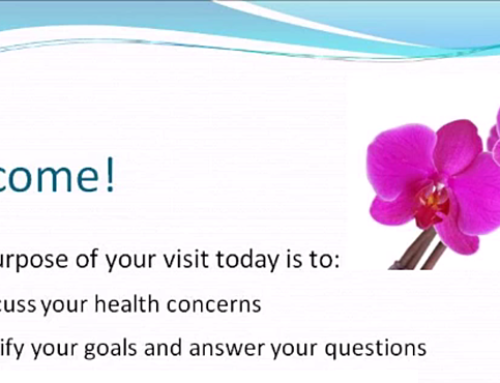
Leave A Comment